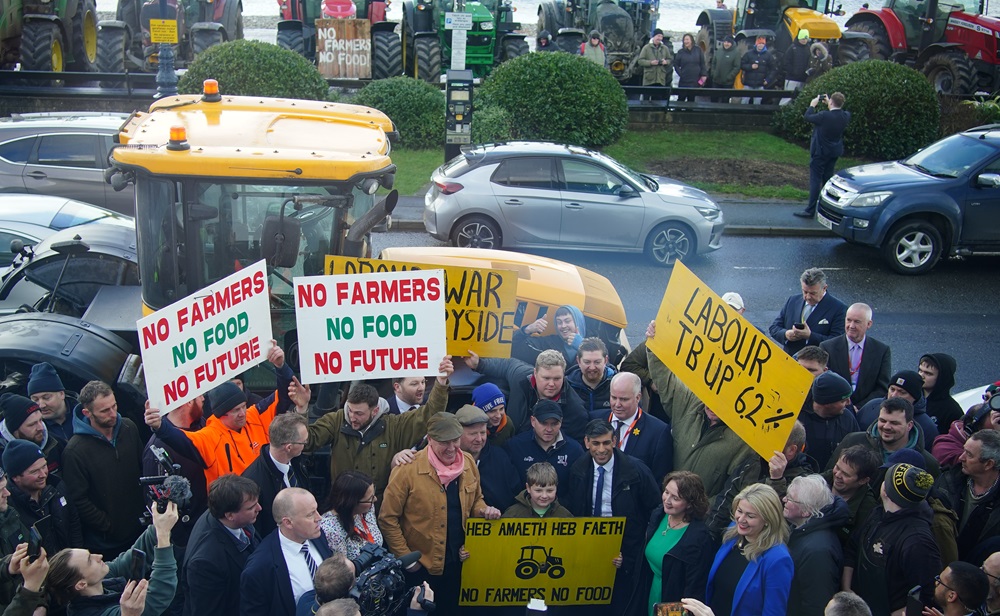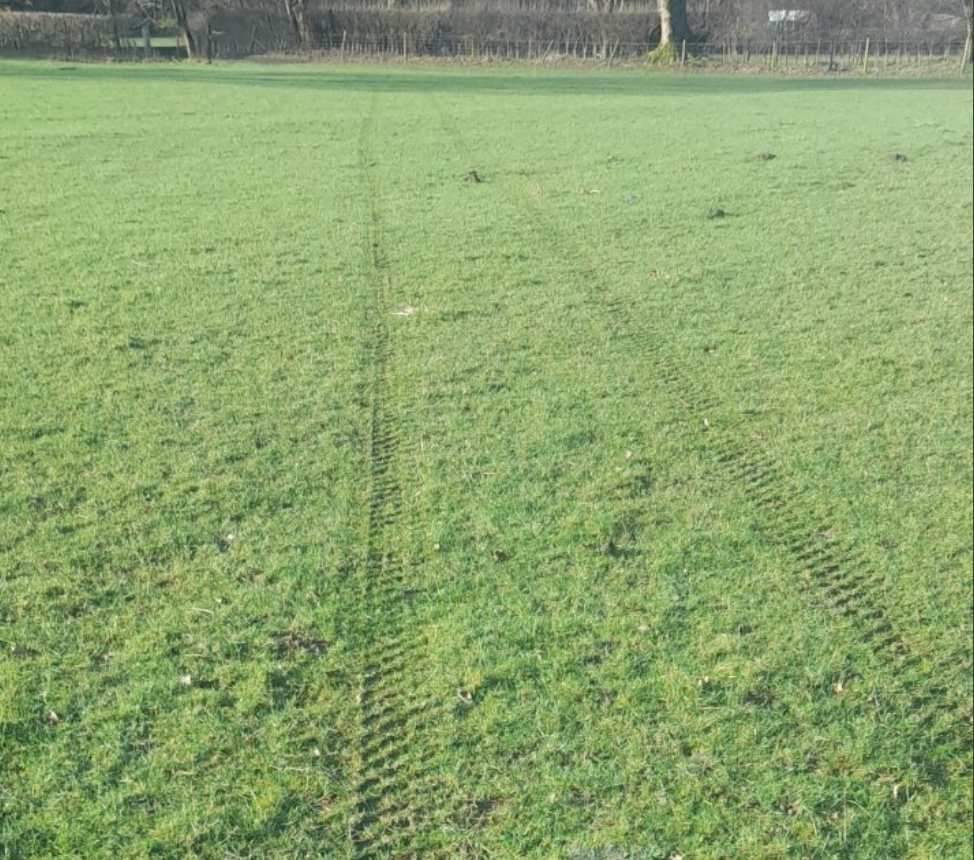Why are Welsh farmers protesting against the government’s agriculture polices?

Emily Price
There is a lot in the news at the moment about farmers protesting against the Welsh Government post-Brexit agriculture reforms.
But why are Welsh farmers so angry and frustrated about the new sustainable land management proposals?
Currently both the UK Government and the Welsh Government are introducing new subsidies for farmers in place of grants once received when Wales was part of the European Union.
In Wales, a consultation is underway for the Welsh Government’s new Sustainable Farming Scheme which will be rolled out in 2025.
The scheme will be voluntary – but will be the main source of government support for farmers in Wales in future.
It’s underpinned by the first ever Agriculture (Wales) Act, representing the biggest change for Welsh agriculture since the EU Common Agricultural Policy.
It will use public money to help farmers in Wales produce food sustainably, tackle the climate and nature emergencies and restore ecosystems.
The SFS will require farmers to bring their existing tree and woodland cover up to 10% – and earmark another 10% for habitat.
But farmers say this would never be practical whilst running a farm business and farming unions say the 10% tree cover requirement represents a “major barrier” to scheme entry and will result in a significant reduction in farm output and land value.
The Welsh Conservatives say the Welsh Government is effectively stealing land from famers.
The Welsh Government says the farm subsidy scheme is necessary in the fight against climate change.
The new proposals may require farm diversification but academics have warned that some farm businesses in Wales face several hurdles to this – such as poor upland land quality and remoteness from centres of population.
The scheme provides some flexibility including counting native tree and woodland cover towards both the tree cover and habitat requirement.
Habitat includes species rich grassland and heathland which continues to be grazed and productive.
Where farms don’t have enough of these permanent habitats, they can meet the requirement by creating temporary habitat of value, such as multi-species pastures.
It’s important to note that on average, tree cover on farms in Wales is already at 6-7% and farmers are required to bring it up to 10% – not put aside an extra 10% on top of their current cover.
Coed Cadw, the Woodland Trust in Wales, says many farms will be able to achieve this in ways which support the farm business as well as providing wider public benefits that justify public funding.
For example, by planting and restoring trees, hedges and woods to provide shade and shelter and protect against soil erosion and pollution.
Uncertainty
But the uncertainty around the future of agricultural support in Wales comes against a backdrop of continuous bovine TB breakdowns and the slaughtering of thousands of Welsh cattle every year.
This is in addition to an all-Wales approach to bureaucratic pollution regulations which will cost the industry in excess of £400m to comply with.
In short – farmers have it really tough right now, and that’s putting it lightly.
According to modelling on the potential economic effects of the SFS, there could be a reduction in farm business income of up to £199m, a reduction in farm output of £125m and 122,000 fewer livestock units.
In addition to this, an 11% decline in on-farm labour requirements has been projected.
In the Senedd last week, Mark Drakeford said farmers in Wales would be in a different position if they hadn’t voted for Brexit.
But there is no evidence that farmers in Wales voted to leave the EU on a greater scale than other sector groups in Wales.
The Welsh Government says the scheme has been designed to keep farmers on the land in recognition that food production is vital for the nation.
But they also say the SFS recognises Wales must respond to the climate and nature emergencies if to ensure a sustainable and resilient agriculture sector for future generations.
The Welsh Conservatives have argued the information the Welsh Goverment has on farms in Wales is outdated or just plain wrong – and there is some evidence of this.
A farmer recently voiced his frustrations over one of his grass fields which the Welsh Government had marked as “enclosed wetland” when it very blatantly isn’t.

Concerns
Plaid Cymru say the Welsh Government should be working with rural communities to show that their voices and concerns are being listened to.
Farmers Union Wales president Ian Rickman said the SFS in its current form is “clearly not ready”.
Welsh ornithologist Iolo Williams has warned that despite the scheme being positive in some ways – it could have a negative impact on Welsh wildlife.
Even TV personality and Cotswold farmer Jeremy Clarkson has waded into the farm subsidy row calling the tree planting policy “completely daft”.
Funding
Between 2019 and 2025 Welsh agriculture will have received around £250 million less in funding than what could have been expected had the UK remained in the EU.
This comes at a time when the Welsh Government has announced a raft of cuts to public services in order to protect the Welsh NHS and support local councils.
In order to plug a £1.3 billion budget shortfall, the Welsh Government’s draft budget for 2024-25 revealed that the total funding for rural affairs will be cut by a total of £62 million – around 13%.
But farming unions say that as the SFS will replace all forms of financial support that farmers currently receive – the overall budget for rural affairs must reflect this.
The Welsh Government’s consultation on the final proposals for the SFS will end on March 7 and famers are urged to take part.
Rural Affairs Minister Lesley Griffiths has said alterations will be made to the scheme before it is rolled out.
A mass protest by farmers is expected outside the Senedd on Wednesday (February 28).
Support our Nation today
For the price of a cup of coffee a month you can help us create an independent, not-for-profit, national news service for the people of Wales, by the people of Wales.






leave the farmers alone. leave wales alone, stop selling out to big business. reduce our taxes. improve education. get priorities right.
And slash farm subsidies to nothing, I don’t see why farming should be propped up with massive subsidies. After all no other sector of the economy is.
Because, as this article puts forward, farming is an uncertain yet cruically important field of work. Weather can be bad, there could be some sort of bovine or avian flu. Harvests could be low, too low to keep one farm going. Those who produce essential products such as food, a thing that everyone has to use, should be well looked after.
Who pays for health and education if taxes are cut? Sounds like privatisation.
The real problem with modern economics is having no salary cap. Minimum Wage is a trick played on the poor to fool them into thinking earning more will automatically improve your life. There should be a maximum Wage introduced!